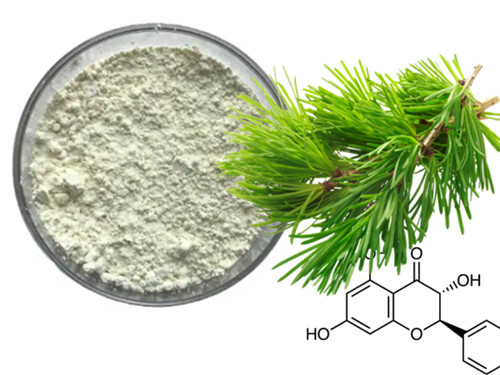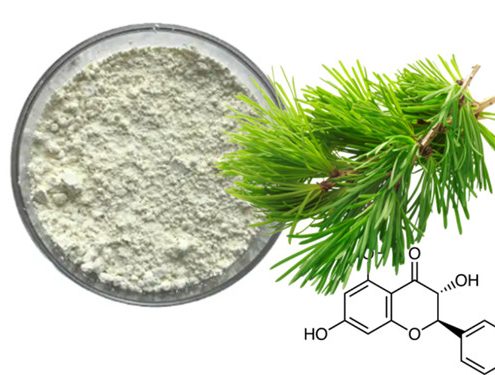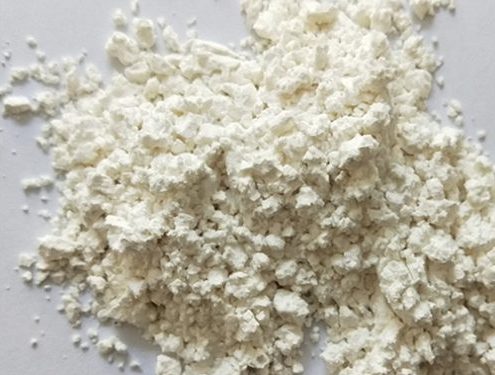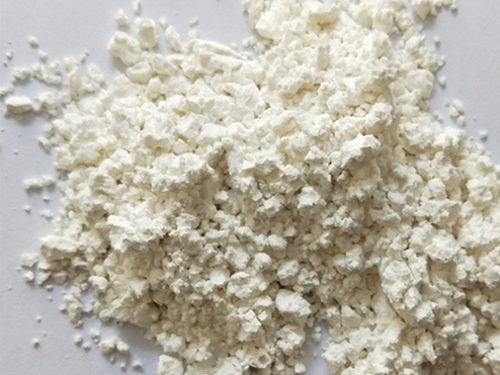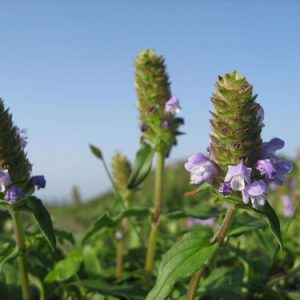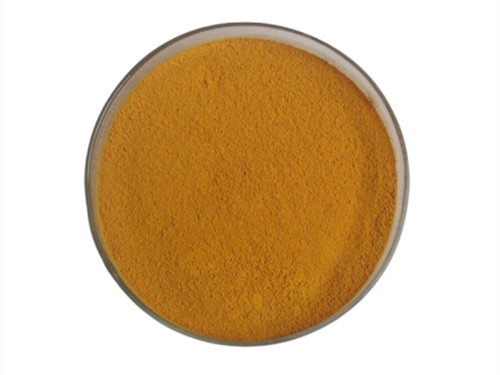Taxifolin (Dahurian Larch Extract)
Specification: Taxifolin /Dihydroquercetinon 90%, 95%, 98%(HPLC)
- Sources:Dahurian Larch root (Larix gmelinii (Rupr.) Rupr.
- CAS NO. : 480-18-2
- Molecular Formula: C15H12O7
- Molecular Weight: 304.254
- Melting Point: 237°C (459°F; 510 K)
- Appearance: Beige Powder Purity
What’s Taxifolin?
Taxifolin, also known as dihydroquercetin, is a bioflavonoid or natural nutrient found in fruits and vegetables like grapes, oranges and grapefruit. It is also present in various plants and its content is high in Larix Mill, especially Pseudotsuga menziesii (Mirb. ) Due to its special molecular dihydroquercetin ructure and five phenolic hydroxyl groups, it’s found the best that has been discovered so far in the world and the most precious A natural and powerful antioxidant “luxury”. These dihydroflavonoid compound belongs to the vitamin P family and is a widely used biologically active agent. It has potent anti-inflammatory and antioxidant effects and has various biological functions in the human body, may serve a number of health purposes as an anti-inflammatory and anticancer agent.
About Rainbow® Biotech
As one of the largest plant extract manufacturers in China, Rainbow Biotech owns a GAP standard plantation of over 300000 square meters which ensures a stable and high-quality supply of raw materials. We manufacture and supply the natural and high-purity taxifolin (dihydroquercetin) extracted from dahurian larch root, which has excellent water-solubility and steady quality. Bulk these excellent ingredients from us for your formula projects now!
Benefits of Taxifolin
- Powerful antioxidant. Taxifolin helps to neutralize harmful free radicals and reduce oxidative stress in the body. This may protect against various diseases associated with oxidative damage.
- Anti-inflammatory effects. Studies have shown that Taxifolin can help reduce inflammation by inhibiting the production of inflammatory molecules like cytokines and prostaglandins. This makes it potentially useful for conditions like arthritis, asthma, and other inflammatory disorders.
- Anti-aging properties. The antioxidant and anti-inflammatory effects of Taxifolin may help combat the aging process by reducing cellular damage and oxidative stress, which are key contributors to aging.
- Neuroprotective potential. Taxifolin has demonstrated the ability to cross the blood-brain barrier, and preliminary research suggests it may have neuroprotective effects. It could help protect brain cells from damage and degeneration, potentially benefiting conditions like Alzheimer’s and Parkinson’s disease.
- Cardiovascular benefits. Taxifolin may have a positive impact on cardiovascular health by improving blood flow, reducing blood pressure, and preventing the oxidation of LDL (bad) cholesterol, which can contribute to atherosclerosis.
- Dandelion Extract: What It Is, Benefits, Uses and Side Effect - April 23, 2024
- Is Berberine Extract Help For Weight Loss? - April 11, 2024
- Why Is Pysllium Husk Powder A Popular Meal Replacement Ingredient? - April 3, 2024

